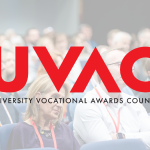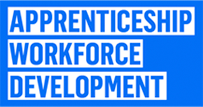Spotlight on conference breakout workshops
This year’s UVAC national conference gives delegates plenty of opportunity to explore innovative ideas and practical insights shaping the future of apprenticeship and skills policy.
In addition to three full conference workshops, three sponsor presentations, and inspiring keynote speakers, there’s the choice of nine breakout sessions for delegates during the conference, to be held at the ICC Birmingham on 20 November. For each session, delegates have a choice of one of three workshops; there’s no need to book, attendees can just head over to their preferred choice.
The choice of breakout workshops include:
World Skills UK endorsed competitions for Higher & Degree Apprentices
Professor Sarah Tudor, Head of Assessment and Progression, Director of the WorldSkills UK endorsed competition at the University of Exeter
This session aligns closely with the conference theme by demonstrating how practical, innovative interventions—such as competition-based learning—can respond to shifts in policy and pedagogy. It reflects on how the sector might evolve to recognise the value of skills competitions as tools for motivation, identity formation, and community-building. By focusing on sustainability and peer collaboration, the session illustrates how future-facing approaches can be embedded into apprenticeship provision to meet both institutional goals and national priorities around skills development, inclusion, and learner success.
Assuring Standards in Times of Change: Co-Creating a Blueprint for Quality,Consistency, and Change
Dr Nicky Westwood, UVAC Associate
Julie Stone, Consultant
Phil Sanders, Consultant
This interactive session explores how the Apprenticeship Journey Blueprint is evolving in response to changing policy, including L7 reforms, Skills England, and increased flexibility. It addresses persistent challenges like data misalignment and fragmented quality processes, aiming to co-create a nationally adaptable framework. The session supports future apprenticeship developments by promoting shared quality assurance systems, integrated learner support, and stronger employer collaboration. Attendees will help shape the next Blueprint iteration, set QA priorities, and contribute to a sector-led model that ensures consistency, compliance, and agility across institutions. Outputs include a summary paper, 2025–26 priorities, and shared tools for network members.
End Point Assessment – Out of the Melting Pot
Sam Moorwood, Associate Director of Skills
Sheffield Hallam University
This session explores the evolution and complexity of End Point Assessment (EPA) in degree apprenticeships, tracing the shift from framework-based assessments to integrated, non-integrated, and wholly integrated EPA models. Drawing on Sheffield Hallam University’s experience across 20+ standards, Sam Moorwood shares how the team developed multiple “translation” models to align apprenticeship outcomes with academic grading—navigating policy ambiguity, regulatory gaps, and employer variability. The session unpacks practical challenges in funding, assessment design, and marking consistency, and questions the future of synoptic assessment. It offers insights into current tensions and asks what Skills England’s evolving role means for assessment and accountability.
Navigating Change: Empowering Insights around workplace mentorship through a World Café
Abigail Salter, Lecturer in Policing Organisation and Practice
Dr Sarah Bloomfield, Senior Lecturer in Work and Organisational Learning
Evelyn Mooney , Programme Leader, WELS, School of Health, Wellbeing and Social Care
Open University
This interactive workshop explores the evolving role of workplace mentorship in degree apprenticeships through insights from a scholarship project on work-based learning (WBL). After a brief presentation highlighting perspectives from learners, employers, and educators, participants will engage in a dynamic World Café focused on mentorship challenges and opportunities in sectors like Policing, Nursing, Social Work, and Management. Through rotating discussions, delegates will share experiences, develop solutions, and build networks. The session concludes with a plenary to synthesise ideas and outline strategies for enhancing mentorship. Aligned with UVAC’s theme of change, the workshop supports policy adaptation and strengthens HE-employer collaboration.
Navigating complexity with employers: Strategic workforce strategies in an era of change
Mark Hayes, Director
Mike Craig, Head of Sales and Accounts
Think
Employer HR and OD teams face unprecedented challenges due to recent Labour government reforms since 2024. These include immigration policy overhauls reducing reliance on overseas labor, sharp National Insurance and minimum wage increases, and the defunding of level 7 apprenticeships amid a new skills-driven National Industrial Strategy. Coupled with rapid AI-driven skill shifts and a retiring workforce, employers must adapt quickly. Universities delivering apprenticeships can support employers navigating this complexity. This session invites delegates to discuss employer education investment drivers, share successful strategies, and explore ways to sustain and enhance the value of level 7 apprenticeships despite funding cuts.
Addressing policy misconceptions about mature learners and university approaches
Dr Trevor A Brown Reader in Strategic Practice and Apprenticeships
Richard Griffin , Senior Lecturer & Assessment Lead
Manchester Metropolitan University
This session explores how degree apprenticeships, rooted in situated lifelong learning, drive organisational growth—particularly through the experiences of mature professionals. It includes a presentation on situated learning pedagogy, real-world benefits, and a case study, followed by breakout discussions and feedback. Challenging government misconceptions that dismiss the value of degree-level learning and mature learners, the session highlights how integrating theory and practice creates meaningful, context-driven development. It argues for policy shifts that recognise the critical role of mature learners in embedding theory into impactful workplace practice, thus aligning university learning with organisational purpose and growth.
The Evolving Apprenticeship Workforce: Navigating Change in Tripartite Roles
Dr Nicky Westwood, UVAC Associate
Dr Helen Charlton, Head of Executive Education, Northumbria University Business School
Dr Phil Power-Mason, Head of Strategic Management, Hertfordshire Business School
This roundtable explores the evolving role of Higher Education Tripartite Professionals (HETPs), who operate at the intersection of apprentices, employers, and universities. Emerging in response to policy and funding shifts, HETPs now play a critical role in managing complex vocational education demands. The session offers space to reflect on their development, share institutional approaches, and discuss future challenges and priorities. Key themes include professional identity, university-employer collaboration, and sustainable workforce models. Outcomes will inform practical toolkits and shape the agenda for UVAC’s Tripartite Professionals Knowledge Network, supporting the continued professionalisation and impact of this essential workforce.
Not just another spreadsheet; Streamlining management
Dr Cliona O Dunlaing Dean, School of Apprenticeships
Lauren Spurling, Head of Apprenticeship Academic
Anglia Ruskin University
Since 2017, Anglia Ruskin University has expanded its degree-level apprenticeship delivery, now managing over 30 Standards across diverse fields for 3,000+ apprentices nationwide. Facing challenges in overseeing numerous self-assessments and improvement plans, the university sought to streamline management while ensuring compliance with Ofsted’s Education Inspection Framework, Apprenticeship Accountability Framework, funding rules, and professional standards. This session shares their innovative, low-cost solution that balances delivery needs with regulatory compliance, enhancing governance without expensive software. Attendees will learn practical strategies for managing complex apprenticeship portfolios efficiently while adapting to evolving policies and maintaining high-quality standards.
The constant in a shifting landscape: the value of work-related co-created practice development in DAs
Jackie Whitehouse, Head of Work-based Learning
Laura Yetton, Programme Manager
University of Warwick
This dynamic, participatory workshop explores maintaining pedagogical integrity in degree apprenticeships amid evolving policies. Combining expert insights, interactive polls, peer discussions, and case studies, it focuses on authentic assessment strategies that reflect real workplace practices, such as portfolios and employer-led evaluations. Participants will examine how integrating learner and employer voices enhances training relevance and consistency. The session offers a practical takeaway toolkit to help educators design adaptable, work-related learning models. Aligned with the conference theme of change, it fosters co-created learning and equips attendees to navigate policy shifts while sustaining high-quality apprenticeship provision.
Book your ticket for UVAC’s national conference
IN OTHER LATEST NEWS

1 days ago, Amanda Danells-Bewley

1 days ago, Amanda Danells-Bewley
NEWS BY CATEGORY
Get our latest news and events direct to your inbox - join our mailing list
Please enter your details below –


